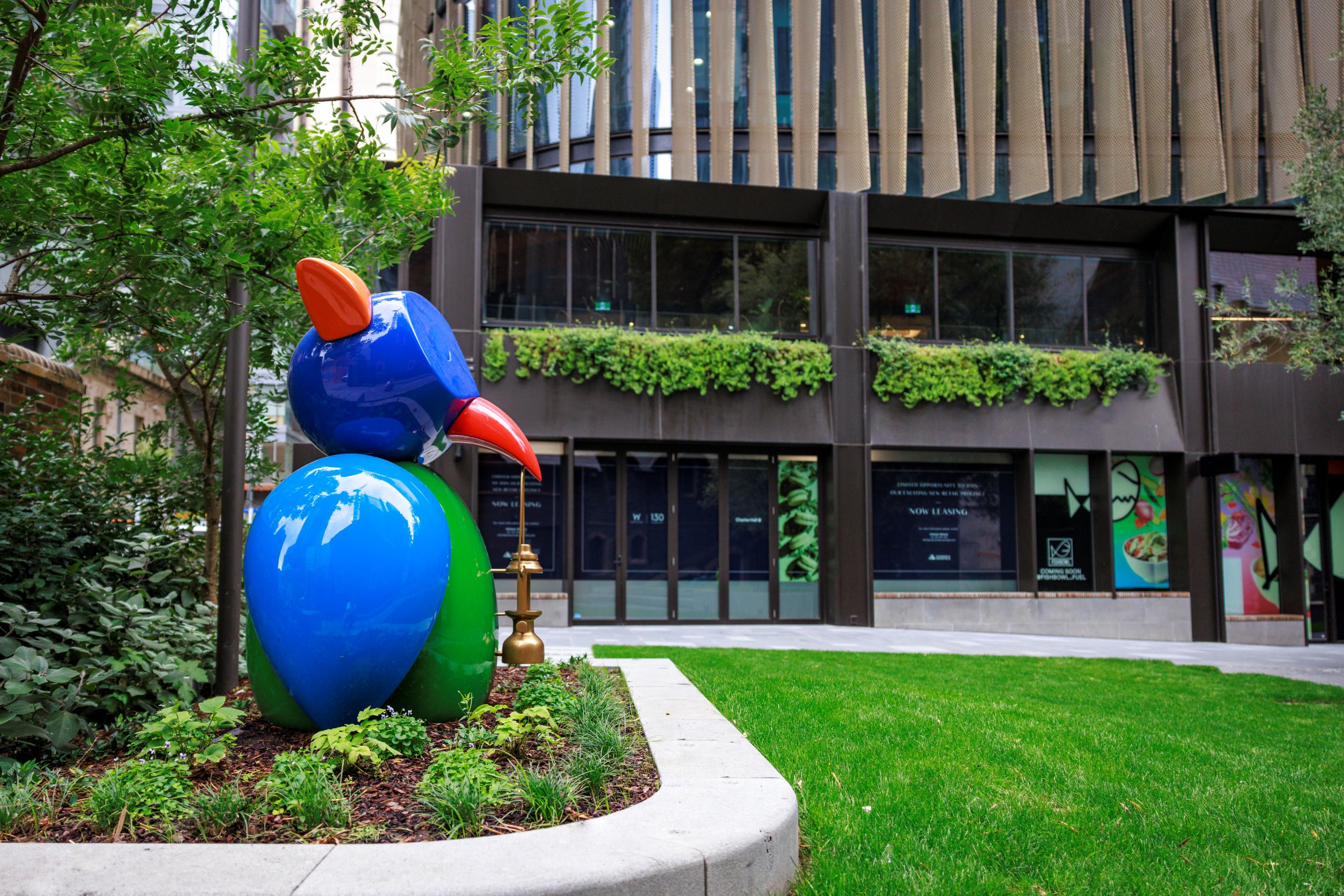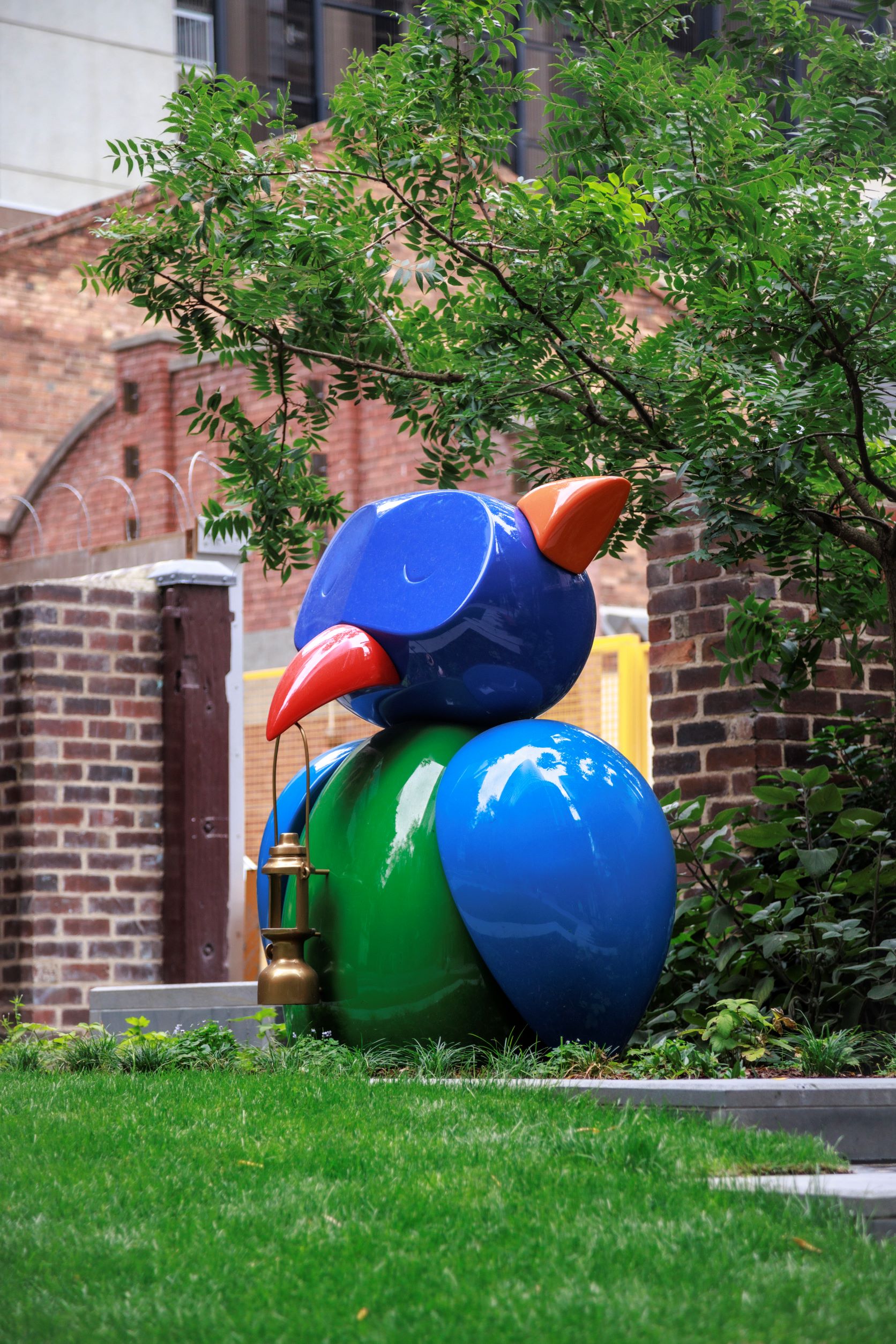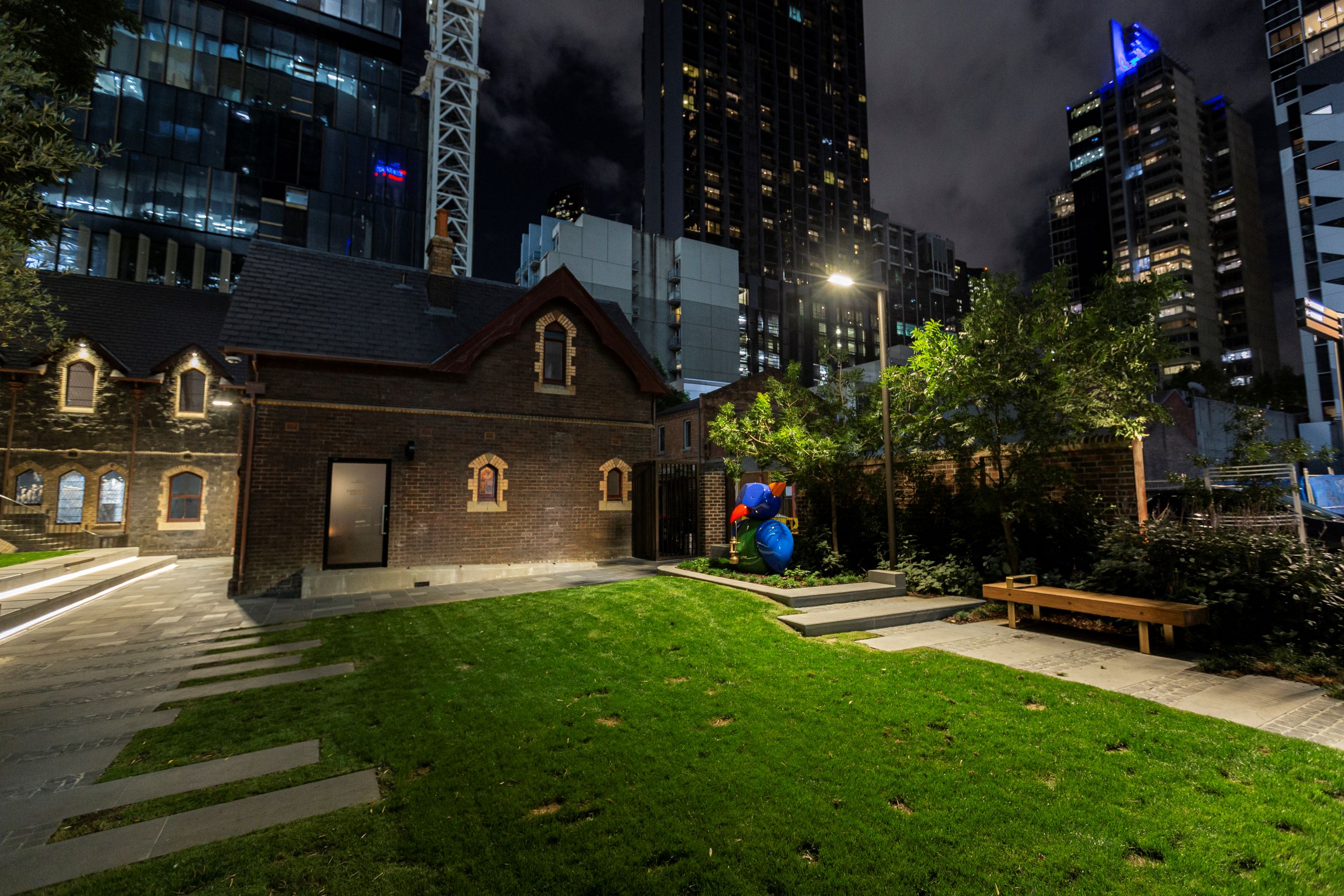Owl of Minerva
.jpg?sfvrsn=830d8a28_2)


Owl of Minerva, 2019. Emily Floyd, Naarm, b. 1972
Cast aluminum, two-part epoxy paint
Emily Floyd is an artist, sculptor and educator working on unceded Kulin land. She explores the history of play, employing it as a frame for investigations into public philosophy, socially engaged design, typography and the legacies of modernism. Drawing parallels between educational models and contemporary art, Floyd’s works generate spaces for engagement and interaction.
The Owl of Minerva illuminates a place of philosophical contemplation and play for Wesley Place, her lantern guides visitors to a knowledge garden filled with medicinal plants, including the sacred olive trees. The sculpture was created by Emily Floyd in dialogue with the great Hungarian philosopher and activist Ágnes Heller (1929 - 2019) who was a member of the Budapest School, an intellectual circle whose key protagonists found sanctuary in Australia following persecution under Hungary's communist regime.

In Greek and Roman mythology the Owl of Minerva is a symbol of knowledge and insight, the non-human companion of Athena or Minerva, goddess of wisdom. The Owl of Minerva is an emblem of philosophy, and a motif employed by Ágnes Heller in her writing to explore the limitations of continental philosophy and linear conceptions of time, “Philosophy is the Owl of Minerva; it casts a retrospective glance. Speculative thinking is this retrospective glance,”[1] The Owl of Minerva spreads its wings only with the falling of the dusk – meaning philosophy comes to understand a historical condition just as it passes away.
The Owl of Minerva was generated via the International Studio & Curatorial Program in New York, curated by Broached Commissions and funded by Charter Hall with the support of the Australia Council for the Arts, Creative Victoria, Monash Art Design & Architecture, Anna Schwartz Gallery and UAP. This project would not have been possible without the encouragement and support of Ágnes Heller’s friends, colleagues and students who gathered at The Greek Centre in 2019 to celebrate the philosopher's enduring legacy. Emily Floyd gives special thanks to Peter Beilharz, Sian Supski, Katie Terezakis, John Rundell and the Thesis Eleven community.

Commissioner: Charter Hall
Curator: Broached Commissions
FOOTNOTE 1. A PHILOSOPHY OF HISTORY IN FRAGMENTS, ÁGNES HELLER (OXFORD, BLACKWELL, 1993)
